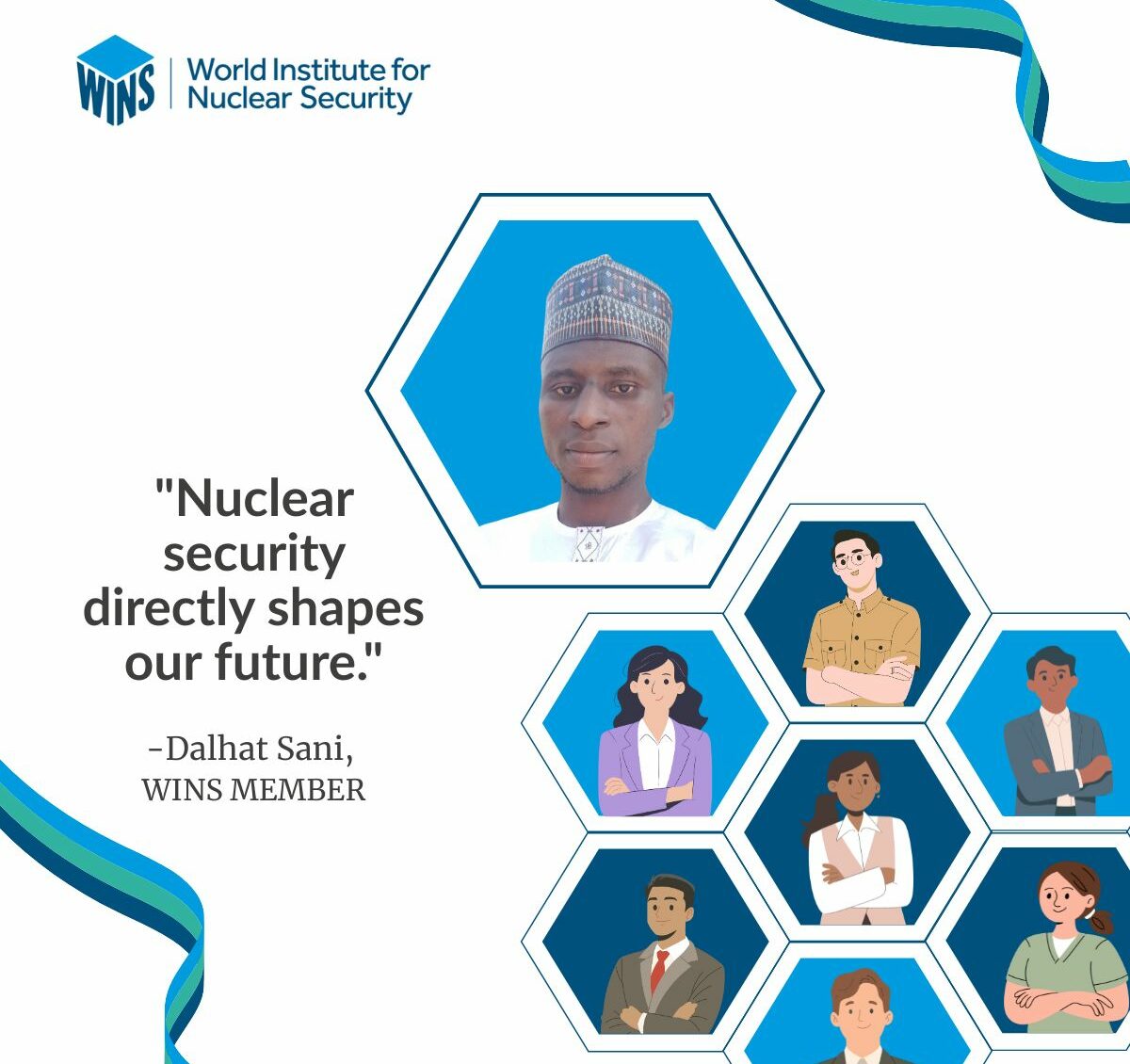WINS’ 10,000 members represent more than a number — it’s a global community of passionate advocates for competence and continuous improvement in nuclear security.
WINS Members are located in more than 170 countries and work in a variety of fields, but they share one purpose: strengthening and sustaining nuclear security. To celebrate the 10,000 member milestone, we’re spotlighting some of our recent new members.
Dalhat Sani is a physics student at Ahmadu Bello University Zaria in Nigeria. He spoke with us about the potential he sees for nuclear technology to solve major challenges and the role of nuclear security in realising its benefits.
What first sparked your interest in nuclear science and nuclear security?
My interest began during my undergraduate studies when I learned about nuclear reactions and their wide applications in energy and medicine. I was struck by the fact that while nuclear technology can solve major challenges, it also demands strict safety and security. That balance inspired me to pursue deeper studies in nuclear physics.
“While nuclear technology can solve major challenges, it also demands strict safety and security.”
Why should young people – especially from developing countries – care about nuclear security?
Because nuclear security directly shapes our future. For developing countries, safe and responsible use of nuclear technology can boost energy access, healthcare, and agriculture. Young people must be involved so that these benefits are realised without compromising safety.
What role can African countries, like Nigeria, play in shaping global conversations on nuclear security and peaceful uses?
Nigeria has a growing need for clean energy, food security, and better healthcare, which makes our perspective very important in global discussions. By building strong regulations and skilled manpower, Nigeria can influence how peaceful nuclear applications are prioritised worldwide. Africa’s voice ensures the global agenda reflects the needs of developing regions.
“Nuclear security directly shapes our future.”
What is the role knowledge sharing between countries and generations?
Knowledge sharing is essential because no single country has all the answers in nuclear science. International collaboration spreads best practices, while mentorship ensures younger scientists can continue the work without starting from scratch. This cycle builds both trust and security for the future.
What are your hopes for the future of nuclear technology in Nigeria and your role in it?
I hope to see Nigeria successfully apply nuclear technology for clean energy, advanced medicine, and food preservation, all under strong safety and security standards. As a young nuclear physicist, I see my role as contributing through research, advocacy, and training, so that Nigeria not only benefits locally but also contributes globally.
